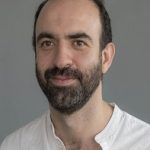
Mazyar Mirrahimi
Professor
Inria
Title:
Roadmaps to fault-tolerant quantum computation with superconducting circuits
Time: Thursday, May 2nd 2024, 10:15 – 11:15
Abstract:
The remarkable recent progress in control and readout of superconducting qubits has led to an accelerated race towards building a useful quantum computer. A portion of the recent developments deal with noisy quantum bits and aim at proving an advantage with respect to classical processors. However, in order to fully exploit the power of quantum physics in computation, developing fault-tolerant processors is unavoidable. In such a processor, quantum bits and logical gates are dynamically and continuously protected against noise by means of quantum error correction. While a theory of quantum error correction has existed and developed since mid 1990s, the first experiments are being currently investigated in the physics labs around the world. I will review the main approach pursued in this direction and state of progress towards error corrected qubits. I will also present various shortcut approaches that are pursued to reduce the significant hardware overhead of error correction. Finally, by focusing on one of these shortcuts (the one pursued in our lab) I will explain how it can lead to drastic simplification of hardware requirements.
Biography:
Mazyar Mirrahimi graduated from Ecole Polytechnique, France, in 2003, and from Mines Paristech with a PhD on Applied Mathematics and Control Theory in 2005. He is a director of research at Inria Paris and part-time professor at Ecole Polytechnique. He is the leader of Quantic research team (https://quantic.phys.ens.fr), a joint team between Inria, Ecole Normale Supérieure, Mines Paristech and CNRS, formed by experimental physicists and applied mathematicians. His current research interests include quantum control, quantum error correction and fault-tolerance, quantum reservoir engineering, superconducting circuits, quantum nonlinear dynamics and quantum algorithms. In the past he has also worked on geometric nonlinear control, dynamical systems, stochastic systems and their stabilization, partial differential equations and their control, inverse problems. From 2011 to 2019, he also held a visiting scientist position at the Applied Physics Department of Yale University, collaborating with the teams of Michel Devoret and Robert Schoelkopf. Through these collaborations, he contributed to the design and analysis of various experiments on quantum error correction, quantum feedback control and quantum reservoir/dissipation engineering with superconducting circuits. He won “Inria-French Academy of Science young researcher award” in 2017.